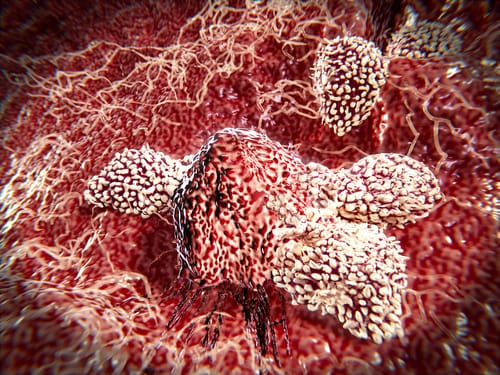Immunotherapy is by far the hottest topic in the cancer research world. One immune approach in particular has created high expectations: CAR-T. This method of reprogramming T-cells has shown impressive preclinical and early clinical results, curing up to 90% of enrolled patients, many of whom were suffering from difficult-to-treat cancers. The development of innovative medication is rarely without its setbacks, however, and the trajectory of CAR-T is no different. The FDA recently suspended Juno Therapeutics’ phase II clinical trial due to three patient deaths.
Nowadays, the buzz in cancer research is all about immunotherapy. The idea behind it is pretty simple: Stimulate the body’s own immune system to take on cancer more efficiently. Central in this immune system of ours are the T-cells. While T-cells find and kill most malignant cells before they develop into a full-blown cancer, tumor cells quickly develop ways of hiding from the immune system, giving them the opportunity to form larger tumors. Immunotherapy aims to boost our immunity by exposing cancer cells and giving them no chance to hide.
Compared to the more generally destructive tactics of chemo- and radiotherapy, the characteristics of immunotherapy make it seem like a more refined way of battling cancer; not only are there are fewer side effects, but also it’s personalized to the patient’s needs and it’s more precise. Imagine using a sniper rifle to shoot cancer cells instead of a shotgun, and you’ll get the picture.
The immunotherapy hype is real, and everyone is jumping on the bandwagon, afraid to miss out on all the possible innovations on the table. Dozens of start-ups and smaller companies are exploring the potential of different immunotherapy approaches, often backed up by deep-pocketed pharma companies that are willing to bet big on the next wave of cancer drugs.
CAR-T: seek and destroy
One of the more experimental approaches to immuno-oncology is CAR-T, a method that jump-starts our T-cells into becoming efficient cancer detectives and killers. By training our T-cells, we can teach them to recognize the molecular mischief of cancer, making them elite cancer assassins. Here’s how it works.
First, the patient’s T-cells are isolated from the blood. Through genetic engineering, the cells are then equipped with a chimeric antigen receptor (CAR). The CAR functions like radar, detecting the specific type of cancer it was designed to find. Once the CAR has been built into the T-cells, they are expanded in the lab to acquire sufficient battle-ready cells. Finally, the enhanced T-cells are reintroduced into the patient’s body, where they seek out and destroy the cancer cells.
While this all sounds beautiful, harvesting, modifying and expanding T-cells is a difficult and time-consuming process that needs to be repeated for every patient. This also makes CAR-T an incredibly expensive method, and governmental institutions have already expressed concerns that health care budgets won’t be able to cope with the costs of such immunotherapies.
Who’s doing it?
Early successes with CAR-T sparked the interest of various scientists, and many smaller companies were founded in its wake. However, it was only when the Swiss pharma giant Novartis announced its dedication to the field that CAR-T truly became big business. Novartis seemed to confirm that CAR-T could be huge, and the company now leads development in the field, with several clinical trials (two phase I and one phase II) currently being performed.
Next to Novartis, more specialized companies have taken the lead within the CAR-T sector. Juno Therapeutics and Kite Pharma both have phase II clinical trials underway, while other companies such as Celyad and Cellectis are still in the early developmental stages.
CAR-T promise continues – clinical trials can resume, says FDA
On July 8, Juno Therapeutics announced that its phase II trial with a CAR-T therapeutic for acute lymphoblastic leukemia (ALL) was put on hold by the FDA. Three of the enrolled patients had died of cerebral edema. The deaths all occurred in patients who were also treated with the chemotherapeutic fludarabine, which is used to kill unenhanced T-cells. Researchers now suspect that the combination of the new chemotherapeutic and Juno’s CAR-T therapy is lethal, rather than the CAR-T therapy in itself.
Intriguingly, Juno’s closest competitor Kite Pharma strategically sent a press release only hours after Juno had declared its tragic setback. Kite announced it had completed enrollment of 72 patients in its own phase II trial, where a very similar setup of using fludarabine as pretreatment is being used, although in lower doses. Kite’s statement seems to suggest that Juno’s compound itself is indeed responsible for the patient deaths, an ill-timed taunting sneer at its closest rival.
Nonetheless, the suspension of Juno’s clinical trial shook the market’s faith in CAR-T. The stock prices of CAR-T companies such as Kite Pharma, Bluebird Bio, Bellicum Pharmaceuticals and Ziopharm Oncology dropped significantly following Juno’s initial 29% tumble. However, Juno’s shares rebounded on July 12, immediately after the FDA removed its hold. Juno will now resume its phase II trials much earlier than anticipated, having removed fludarabine from its treatment protocol.
Although CAR-T may have lost some of its shine due to this tragic event, the treatment method is far too solid and promising to write off just yet.
Read more about CAR-T therapy here.
Cancer immunotherapy will also be the topic of BioVox’next white paper. Please contact us at news@biovox.be if you and your company would be interested to participate.


